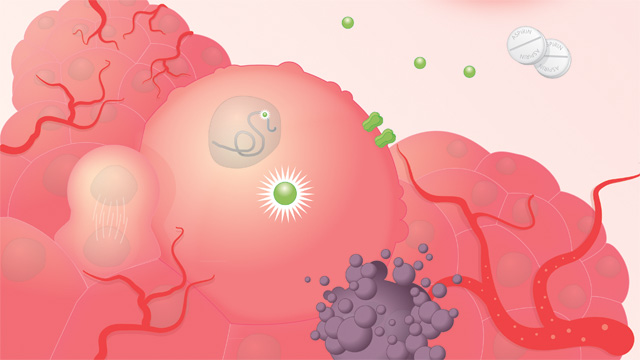Anti-inflammatory Drug Works Like an Inhibitor
At Karolinska Institutet in Sweden, a team of scientists from multiple disciplines have worked together to develop an inflammation inhibitor.

The new anti-inflammatory drug molecule possess a unique mechanism of action. Essentially, the drug works by inhibiting a certain protein, called OGG1, which is studied to repair DNA was found to cause a reduction in the signals that trigger an inflammation.
The inhibitor works by blocking the release of inflammatory proteins, such as TNF alpha. During investigations on mice with acute pulmonary disease, the drug was found to dampen the inflammation.
Learn more about inflammatory responses:
In collaboration with the University of Texas Medical Branch, Uppsala University and Stockholm University--results of the findings are described in a publication in Science.
"We've developed a new drug molecule that inhibits inflammation," explains co-leader of the study, Professor Thomas Helleday, at the Department of Oncology-Pathology, Karolinska Institutet, Sweden. "It acts on a protein that we believe is a general mechanism for how inflammation arises in cells."
Discovery of the anti-inflammatory drug was the product of a long-term investigation on the mechanisms behind DNA repair—with the objective of fighting cancer by targeting a tumors cell’s DNA. Such research has resulted in several breakthrough drug discoveries including PARP inhibitors for the treatment of congenital breast and ovarian cancer.
Researchers were originally investigating the development of a new molecule that inhibits the enzyme, OGG1, which was found to be responsible for oxygen damage to DNA—that’s when they discovered that the molecule also dampened inflammation.
The result concluded that OGG1, apart from repairing DNA, triggers inflammation—making its inhibition critical in the treatment for inflammatory diseases.
"This discovery could give rise to a new treatment for a very serious condition," says Professor Helleday. "We'll now be developing our OGG1 inhibitor and examining whether it can lead to new treatments for inflammatory diseases in order to cure or relieve diseases such as sepsis, COPD and severe asthma."
Source: Science Magazine








